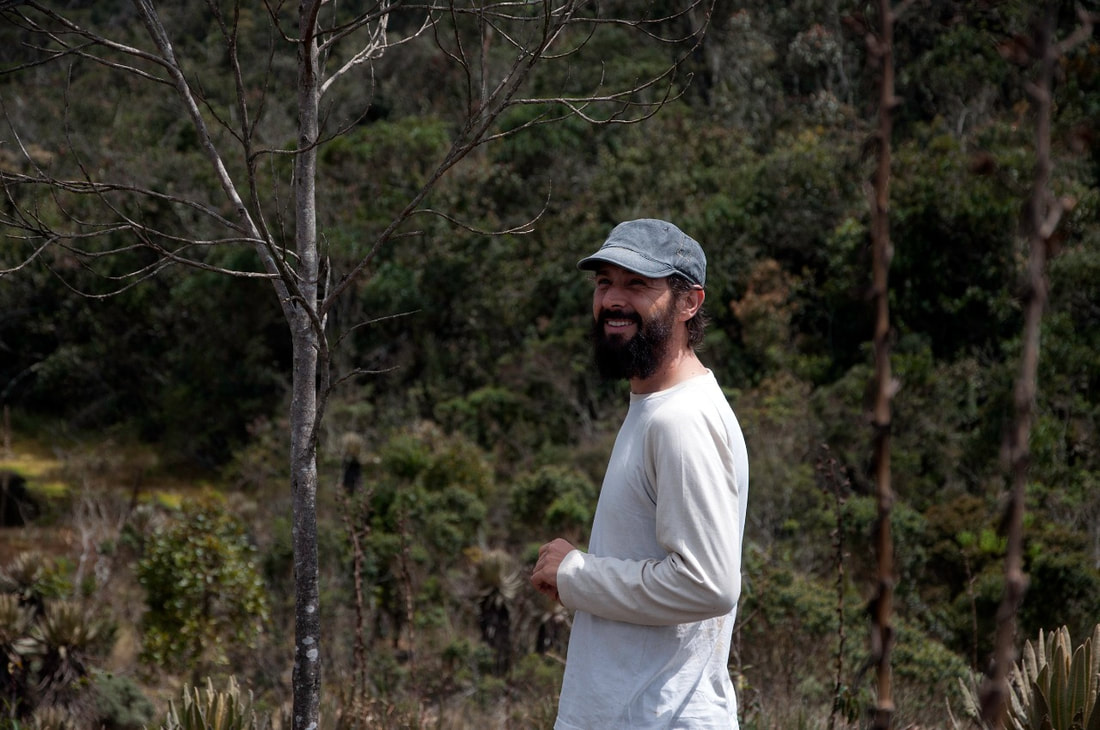Ecohydrology is an open, interdisciplinary field that explores the biological, biogeochemical and, ultimately, ecological connections within and between ecosystems including “natural" (note the quotation marks) and human-dominated systems. Ecohydrological knowledge is central to addressing the most fundamental challenge humanity is facing today, the climate crisis.
What are your undergraduate and graduate degrees in?
I finished my undergraduate in 2000 on Environmental Engineering from the Antioquia School of Engineering, a small private engineering College in Medellín, Colombia. I got my MSc in Forests and Environmental Conservation from the National University of Colombia, in 2006, and my PhD on Watershed Management and ecohydrology from the University of Arizona in 2010.
How did you arrive at working in/thinking about ecohydrology?
It all started with my undergraduate thesis, or perhaps before, when I was undecided which class I enjoyed better: basic hydrology or Ecology. For my undergraduate thesis, I did a review of local studies that addressed soil-water-ecosystem relationships. In my master’s thesis I studied fog interception in tropical montane cloud forests in the Andes. Later, I moved to Arizona to study microclimate, energy and evapotranspiration partitioning in response to changes in vegetation cover in semiarid systems. I could say that all my scientific career has revolved around ecohydrology in different types of ecosystems. I would summarize my research as understanding environmental change (including land use and climate) effects on ecosystems and their services at multiple spatial and temporal scales, through an ecohydrological lens.
What do you see as an important emerging area of ecohydrology?
More than an emerging area, addressing the fundamental challenge of the climate crisis requires the participation of all disciplines, particularly Ecohydrology. Among the multiple aspects that are needed to address this challenge, understanding the potential feedbacks between climate change and ecosystem function, structure and composition is particularly pressing to determine the future of biodiversity, ecosystems and their services to society. Such task, requires the integration of disciplines. I see “functional ecohydrology” as an emerging area integrating principles of functional ecology with ecohydrology to understand and predict global change effects and feedbacks with ecosystems globally,
Do you have a favorite ecohydrology paper? Describe/explain.
Hard question. However, I always come back to G.G. Bonan, 2008 in Science (Forests and Climate Change: Forcings, Feedbacks, and the Climate Benefits of Forests) as it has, for me, the most compelling conceptual figure on the connections between ecosystem function, energy, water and carbon, in the context of global change. Also, L.A. Bruijnzeel (2004) Hydrological functions of tropical forests: not seeing the soil for the trees? (Agriculture, Ecosystems & Environment) was sort of my formal entering point to Ecohydrology, and over 15 years after I see myself revisiting it all the time.
What do you do for fun (apart from ecohydrology)?
I have the fortune to live in a rural area, very close to a nicely preserved area that covers Andean Forest all the way to Paramo. I live with my partner Pilar, our 7 dogs, 10 chickens and one cat and wildlife that visit us every once in a while. We are trying to restore native forest in the previously intensively grazed area of our 3.5 ha property. Planting trees, figuring out combinations of potential restoration strategies, trying to grow our own food occupy most of our fun time, and it is really fun. Brewing beer with a group of friends (though that has been stopped by the current situation) has been also my hobby in the past few years. We have had great batches but some have come out horrible (reminds me of some some paper reviews…).

 RSS Feed
RSS Feed